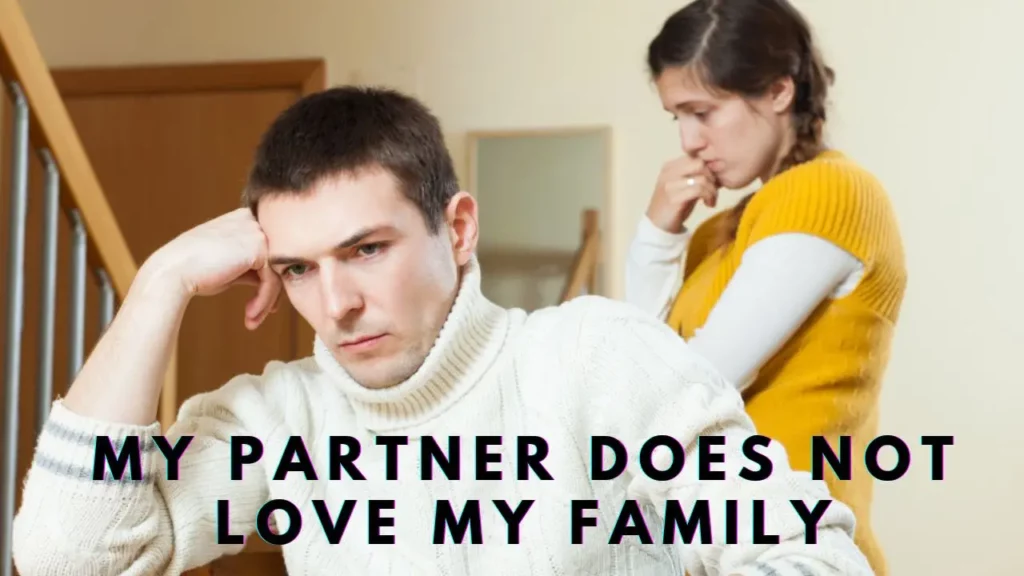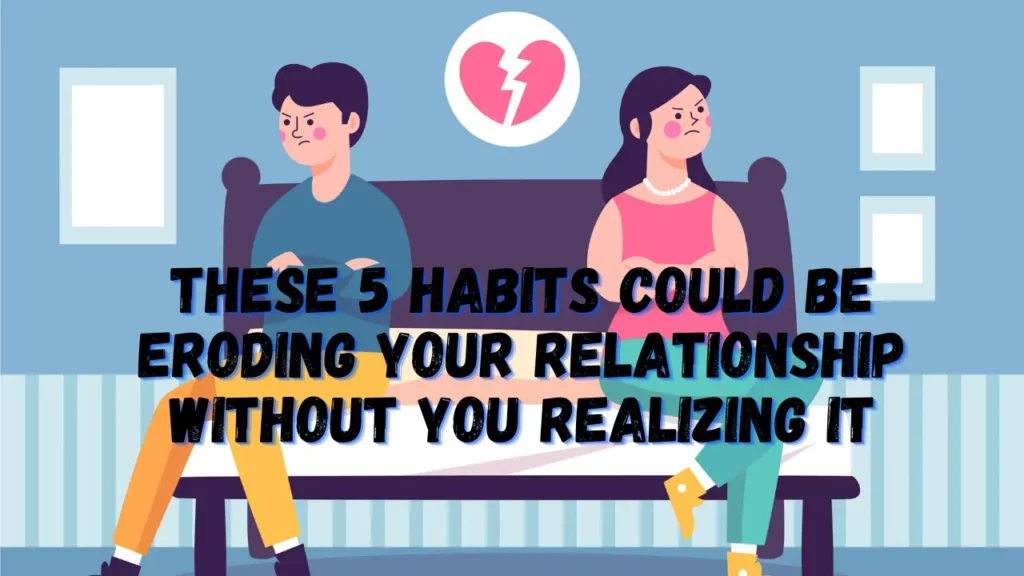Let’s look at the probable causes of your partner not liking your family and possible solutions.
Does this thought frequently come to mind: “My partner doesn’t love my family”? Do you feel like you are in a constant war between your family and your partner? Don’t despair. In this article, we bring some key ideas to improve the relationship between your partner and your family.
However, first, we will comment on three possible circumstances (or causes) that could be occurring along with this situation, which will help you better understand the reason for everything.
“My partner does not love my family”: possible circumstances
You think, “My partner doesn’t love my family, ” but you don’t quite understand why. Many causes (or circumstances) could explain it, but here you will find some quite frequent ones that could occur in your case.
So, why doesn’t my partner love my family? What circumstances may be accompanied by the situation you are experiencing? Let’s see some:
1. Your family does not like your partner
One of the possible circumstances surrounding your partner’s not liking your family is that your family does not want your partner, either.
This is often noticeable, and your partner may notice that your family does not like him, which in turn causes a certain distance between both parties or even the emergence of conflicts. That is, there may be no feeling between your family and your partner, and this “displeasure” is mutual.
2. They have nothing in common
Another possible circumstance is that your family and your partner have nothing in common.
This can make your partner too lazy to attend family events or not feel sympathy for them because they have never connected. Thus, the lack of common interests can cause a situation like the one we propose.
3. For your family, your partner is insufficient
It can also happen that your family thinks your partner is not enough for you (good enough, smart, rich, whatever). That is, they think that you deserve something “better.”
Couples end up noticing this, which can lead to your partner not feeling sympathy for your family either and directly “doesn’t love it” because these thoughts towards her logically make them feel bad (feeling, in turn, “little thing” for your son).

4. Your partner feels that your family is too intrusive.
Some political families are more “invasive” than others in the emotional realm of their relatives; That is, fathers and mothers who get very involved in their children’s relationships, and others who give them more freedom and more free rein.
In the first case, your partner may feel overwhelmed by your family’s interference in the relationship, so they do not want to be with your family (or directly “does not love them”).
How to improve the situation?
If you constantly feel this feeling or think your partner doesn’t quite like your family, it may be time to consider some changes in your life and get to work to change the situation.
However, It should be clear that for this, you and your partner must want to change this situation and improve your partner’s relationship with your family. That is, there must be real motivation and interest. Without this first step, it is impossible to change anything.
We are going to divide this section into two: in the first, we will talk about guidelines or key ideas that your partner can put into practice to improve the relationship with your family (who are usually your parents), and in the second, about guidelines or critical ideas that you can put into practice yourself.
1. Guidelines for the couple
Given the thought that your partner does not love your family, you must also consider the following: how can she help to change the situation? (besides yourself). Always if she wants to, and that this path is focused on improving your relationship if she has been affected by the situation. Here are some guidelines:
1.1. To speak with your family
The first idea is that your partner directly talks to your family. You can simply approach her little by little to find out if there are any basic problems or conflicts she is unaware of or ask directly.
Depending on the circumstances and trust, you can probe these questions or ask directly if they have a problem with it. It can also be a good occasion to approach positions, empathize with the other party, listen to each other, understand each other, iron out rough edges, etc.
1.2. Organize an activity together
Another idea is that your partner or both (with you) organize some activity or event to share time together. The ideal would be to develop it in a warm, pleasant, and relaxed environment so that conflicts do not arise and things can be talked about completely naturally.
2. Guidelines for oneself
If you want to be the one to take control of the situation and act, here are some tips that may help you:
2.1. Talk to your partner
The first step is to talk directly with your partner about the situation, how you feel about it, what you think, how it is affecting you, how she lives it, etc. Look for a good time to do it and to be able to share feelings, thoughts, or beliefs about the current situation.
Surely, your partner also needs to “vent” and express his concerns and needs in this regard.
2.2. To speak with your family
Beyond talking to your partner, it may also be important to talk to your family and express your feelings about this situation. Do you feel uncomfortable with your partner? They do not like it? Do you feel like your partner rejects you? How do they live it?
These are just some questions you can ask your family, directly or indirectly. The goal is for your family to understand that your partner and her are important to you and that you don’t want your relationship with her to harm your relationship or family dynamics.
Choose between family or couple?
It is one thing to feel “my partner does not love my family,” the other, which goes much further, is having to choose between your partner or your family. If none of the parties have asked you about this, you don’t have to ask it yourself, at least a priori.
Ideally, you should be able to maintain both relationships, and one should not be incompatible with the other. In the end, we are human, and people understand each other. However, it is an excellent time to think if things get too bad or there is great tension between your partner and your family (and you have already tried everything).
It is unnecessary to be radical and decide between “one thing or another.” Still, consider equally distributing your time between both facets of your life without your partner having too much contact with your family. We are already talking about extreme cases, but sometimes they happen.




